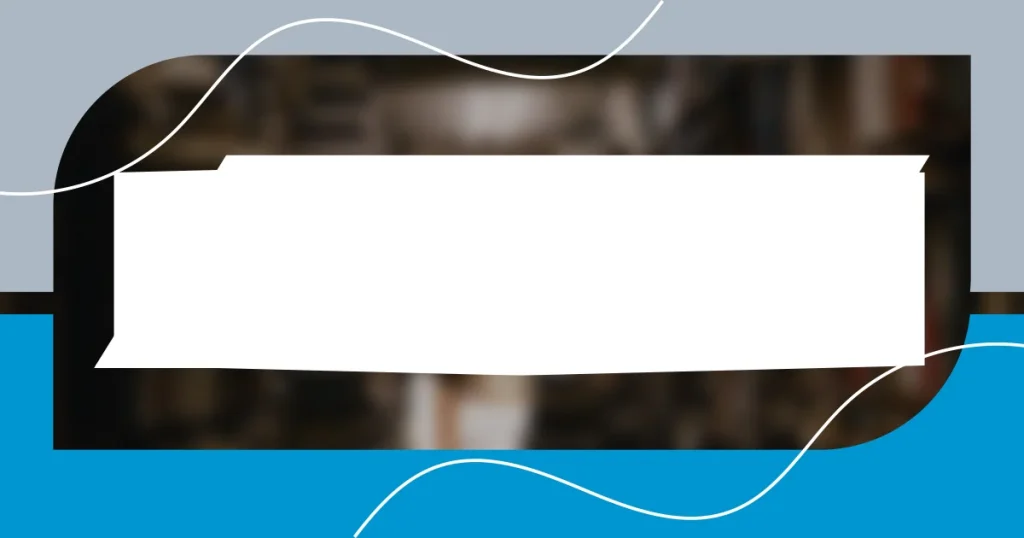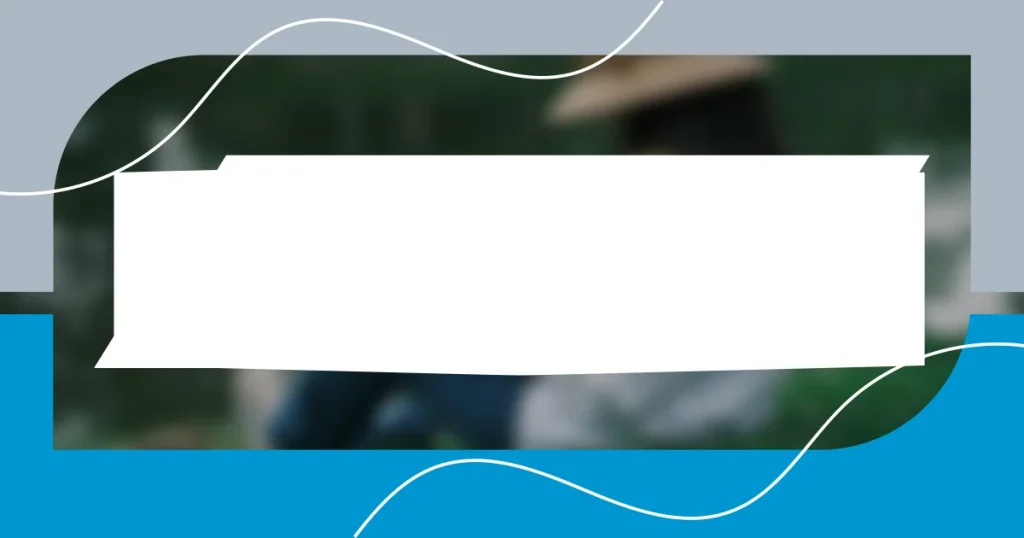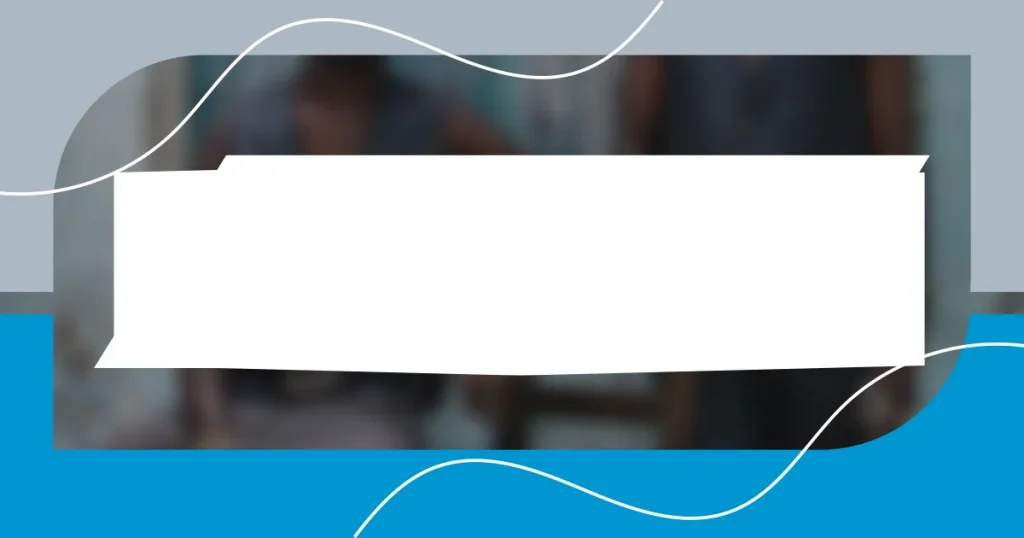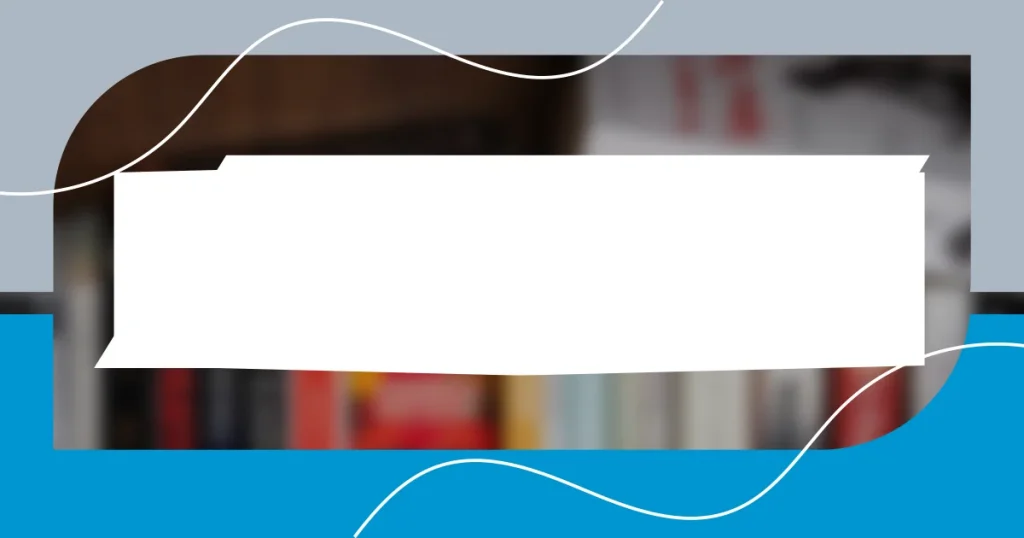Key takeaways:
- Classics connect us with enduring human emotions and societal themes, prompting reflection on our own experiences and moral dilemmas.
- Engaging with classic literature promotes personal growth by fostering empathy, self-reflection, and courage in confronting challenges.
- The moral and ethical complexities in classics encourage ongoing self-inquiry, helping us navigate modern dilemmas with insight from historical perspectives.
Understanding the Value of Classics
When I think about the value of classics, I’m often reminded of how these timeless works connect us with centuries of human thought and emotion. For instance, reading “Pride and Prejudice” not only entertained me but also made me reflect on societal norms and personal relationships. Isn’t it fascinating how a story from over two hundred years ago can still resonate with our modern experiences?
I remember sitting in a cozy café, immersed in “Moby-Dick,” feeling the swell of emotion as I navigated Captain Ahab’s quest. It struck me that classics challenge us to confront our own obsessions and moral dilemmas. Isn’t it important to grapple with such profound questions? Engaging with these narratives brings perspective, as they teach us about the complexities of the human condition, making our own struggles feel more bearable.
Moreover, the language and style of classics can be a treasure trove of insight into different times and cultures, enriching our understanding of history. When I first tackled “The Great Gatsby,” I found the lyrical prose so captivating that it propelled me to explore the Jazz Age further. How often do we dismiss the past as irrelevant when, in fact, it holds lessons that could shape our future? Rediscovering these themes often sparks a deep appreciation for both the art of storytelling and our shared humanity.
Key Themes in Classic Literature
Classic literature often revolves around recurring themes like love, loss, and societal struggle. I remember reading “Wuthering Heights” and feeling a profound sense of the destructive nature of unrequited love. In those pages, I found a reflection of my high school heartbreak, where love seemed to ignite passion but also chaos. It’s incredible how literature can mirror our own experiences, isn’t it?
Another key theme is the quest for identity, beautifully explored in novels like “The Catcher in the Rye.” I vividly recall how Holden Caulfield’s bewilderment resonated with my own teenage years, filled with questions about who I was supposed to become. Doesn’t it make you think about your own journey towards self-discovery and acceptance? These themes remind us that everyone struggles with identity at some point, making us feel less alone.
Additionally, the exploration of morality and ethics is prominent in classics such as “Crime and Punishment.” When I read about Raskolnikov’s internal conflict, I couldn’t help but reflect on my own moral doubts. The way Dostoevsky delves into the complexities of right and wrong is a powerful reminder that our choices shape us, and confronting these dilemmas is part of being human. How does the literature you read challenge your own beliefs and ethics?
| Theme | Example |
|---|---|
| Love and Loss | Wuthering Heights |
| Quest for Identity | The Catcher in the Rye |
| Morality and Ethics | Crime and Punishment |
Personal Growth Through Reading
Reading classics has profoundly shaped my personal growth in ways I never anticipated. I vividly recall finishing “Jane Eyre” and being struck by the strength of its protagonist. Her resilience against societal expectations inspired me to confront my own challenges with a newfound courage. That book taught me that vulnerability can coexist with strength, illuminating paths toward self-acceptance.
Here are some insights I’ve gleaned from my reading journey:
- Empathy: Each character’s struggle has taught me to better empathize with others in my life.
- Self-Reflection: Stories often prompt me to reflect on my values and desires, encouraging personal honesty.
- Courage: Heroes facing adversity inspire me to tackle my own fears and uncertainties head-on.
As I flipped through the pages of “The Grapes of Wrath,” I felt an emotional tide pulling me into the depths of human suffering and resilience. It awakened a sense of responsibility to engage with the world around me. Witnessing the Joad family’s struggles compelled me to appreciate my own privileges and sparked a desire to advocate for those less fortunate. Isn’t it fascinating how literature can ignite a fire of social awareness and responsibility within us?
Critical Thinking and Analysis Skills
When I delve into classic literature, I find that it challenges my thinking in ways I didn’t expect. For instance, reading “The Great Gatsby” not only drew me into the opulence of the Jazz Age but forced me to ponder the deeper implications of the American Dream. I often ask myself, what does success even mean? This narrative pushed me to analyze societal values and my own aspirations against a backdrop of ambition and disillusionment.
Engaging with complex characters helps sharpen my analytical skills. In “Pride and Prejudice,” Elizabeth Bennet’s sharp wit and social commentary prompted me to consider how biases shape our perceptions of others. I remember having an insightful discussion with friends about our initial impressions of the characters. How often do we misinterpret people based on superficial judgments? This reflection has taught me the importance of deeper inquiry and understanding.
The rich symbolism and themes embedded in these works also foster critical thinking. When encountering the tragic hero in Arthur Miller’s “Death of a Salesman,” I couldn’t help but reflect on the nature of failure and the pressure to conform. Those moments made me question societal expectations: Is our worth defined by success alone? Engaging with these narratives allows me to dissect layers of meaning and extract valuable life lessons, helping me grow not just as a reader, but as a thinker.
Emotional Resonance and Empathy
I’ve found that literature possesses an incredible ability to evoke emotions, often leading me to feel a profound sense of empathy for characters I’ll never meet. The moment I read “Les Misérables,” I was deeply moved by Jean Valjean’s struggles against injustice and his quest for redemption. It made me reflect on the complex realities people face in everyday life. How often do we overlook the battles others are fighting silently? This understanding has motivated me to practice kindness and patience, recognizing that everyone has a story worth hearing.
Diving into the worlds of these classic novels has pushed me to step outside my own experiences. In reading “To Kill a Mockingbird,” I became acutely aware of the racial injustices that permeate society. Atticus Finch’s unwavering moral compass and empathy towards Tom Robinson not only ignited my sense of justice but made me question my own biases and assumptions. I often wonder, when was the last time I truly listened to someone with a different perspective? This inquiry has encouraged me to approach conversations with an open heart and mind, fostering connections that transcend my limited worldview.
Seeing the emotional journeys of these characters can be incredibly transformative. After finishing “Wuthering Heights,” I was left contemplating the destructive nature of obsession and longing. The intensity of Heathcliff’s love made me ponder how our emotions can sometimes lead to ruin. Have I ever let my emotions overpower my better judgment? This reflection shaped my interactions, reminding me to maintain balance and not to let passion cloud my judgment. Engaging with these stories has not only resonated with me deeply but continues to shape my understanding of human connections and the spectrum of emotions we all experience.
Inspiration for Modern Life
Classic literature has a way of illuminating the present, allowing me to draw fresh inspiration from age-old tales. For example, while reading “The Alchemist” by Paulo Coelho, I was struck by the importance of pursuing one’s personal legend. It made me reflect on my own paths and aspirations. How often do we hesitate in the pursuit of our dreams? This book nudged me to embrace my ambitions with renewed vigor, reminding me that the journey matters just as much as the destination.
I often find that the moral dilemmas faced by characters resonate with contemporary challenges. Take Dostoevsky’s “Crime and Punishment”; Raskolnikov’s internal conflict about morality sparked important self-reflection for me. Have I ever justified my actions to avoid the consequences? This poignant narrative pushed me to examine my decisions and the ethical frameworks I live by, reinforcing the idea that every choice carries weight and meaning.
Reading the struggles and triumphs of classic characters can provide a powerful framework for navigating modern challenges. In my own life, I recall grappling with a tough career decision, much like the choices faced by characters in “The Odyssey.” Odysseus’s determination and resilience inspired me during that uncertain time. How do we find our way amidst the chaos? His journey taught me the value of perseverance and adaptability, qualities that undoubtedly shape our modern lives.
Applying Lessons from Classics
Reading classics has also made me acutely aware of the struggles that persist through time. For instance, while immersing myself in “The Grapes of Wrath,” I felt a powerful connection to the characters’ relentless fight for survival amidst economic hardship. It struck me personally, as I recalled my family’s history of overcoming adversity. How often do we reflect on our roots and the resilience it takes to move forward? This realization has deepened my appreciation for tenacity in today’s world, pushing me to encourage others facing their own battles.
The complex relationships portrayed in classic literature often reflect the dynamics we experience today. After I read “Pride and Prejudice,” I couldn’t help but think about the importance of effective communication in my relationships. Elizabeth Bennet’s witty exchanges and evolving perspective on Mr. Darcy reminded me of how misunderstandings can cloud judgments. When was the last time I misinterpreted someone’s intentions? This reflection has encouraged me to cultivate patience and strive for clarity in my conversations, ultimately enriching my personal connections.
Engaging with these classic narratives doesn’t just provide lessons; it sparks ongoing dialogues within ourselves. From “Jane Eyre,” I took away a sense of self-empowerment as Jane navigated her identity in a restrictive society. I often find myself asking—how do I define my own worth amidst external expectations? This inquiry has fueled my journey toward self-acceptance and authenticity, reminding me that my voice deserves to be heard in a world that can sometimes be dismissive. Each classic I read becomes a conversation partner, nudging me toward growth and understanding in my everyday life.











